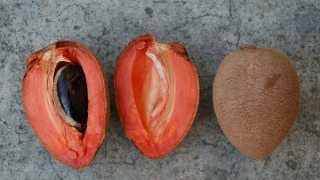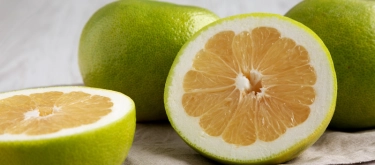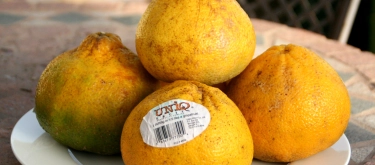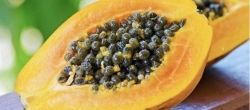Avocado: Taste Profile, Aroma, Benefits and Health Risks
Avocado is a unique, nutrient-rich fruit known for its creamy texture and mild flavor, making it popular in both savory and sweet dishes. Native to Central and South America, avocado is celebrated for its versatility and health benefits, including its healthy fat content and high levels of essential vitamins and minerals. This article explores the flavor characteristics of avocado, its culinary applications, health benefits, and tips for selecting and storing it.
What does Avocado taste like?

Primary Flavor Characteristics
Avocado has a mild, buttery flavor with subtle nutty and earthy undertones. Its taste is smooth and slightly grassy, offering a creamy base that complements various dishes.
Aromatic and Taste Nuances
The aroma of avocado is subtle, with light vegetal notes that give it a fresh, clean scent. The flesh is soft and creamy, with a faint nuttiness that adds depth without overpowering other ingredients. Avocado’s mild flavor allows it to take on the characteristics of other seasonings and ingredients it’s paired with, making it a versatile ingredient.
Scientific Description of Taste and Aroma
- Aroma: Mild, with light vegetal and nutty notes.
- Taste: Buttery, slightly earthy, with a creamy, subtle nutty flavor.
- Texture: Smooth, rich, and creamy, with a tender, melt-in-the-mouth quality.
In-Depth Flavor Analysis of Avocado
Underlying Flavor Notes
The flavor profile of avocado is subtle yet satisfying, with a few distinct qualities:
- Buttery Richness: The primary taste is a creamy, buttery flavor that adds richness to both savory and sweet dishes.
- Nutty Undertones: Avocado has a gentle nutty taste that complements its creamy texture.
- Earthy and Green Notes: A slight earthiness gives avocado a fresh quality, making it an excellent base for various flavors.
Impact of Ripeness on Flavor
- Under-ripe Avocado: Firmer texture with a grassy, slightly bitter taste; not as creamy and often more difficult to mash.
- Fully Ripe Avocado: Soft, rich, and buttery with a smooth texture, ideal for mashing, spreading, or slicing.
- Over-ripe Avocado: May develop a strong, slightly off-putting flavor with brown spots and a mushy texture.
Textural Qualities
The texture of avocado is smooth and creamy, almost like softened butter, making it ideal for spreading or blending into sauces and dips. This creamy texture is a hallmark of ripe avocado and one of the reasons it’s so popular.
Culinary Uses of Avocado
Primary Uses
- Salads and Sandwiches: Avocado adds creaminess to salads and sandwiches, providing a healthy, satisfying texture.
- Guacamole: One of the most popular uses, avocado is mashed with lime, salt, and other seasonings to create guacamole, a staple in Mexican cuisine.
- Smoothies and Desserts: Avocado’s creamy texture makes it a great addition to smoothies, puddings, and ice cream, where it adds richness without a strong flavor.
- Toast and Spreads: Avocado toast is a popular breakfast item, often topped with salt, pepper, and various seasonings or toppings.
- Sushi and Bowls: Avocado is commonly used in sushi and grain bowls, adding creaminess and a nutritional boost.
Ideal Pairings for Avocado
- Citrus: Lime and lemon enhance avocado’s mild flavor, balancing its richness with acidity.
- Salt and Pepper: Simple seasonings like salt and pepper bring out avocado’s subtle flavor.
- Herbs: Cilantro, basil, and parsley add freshness, complementing the creamy texture of avocado.
- Spices: Chili powder, paprika, and cumin add a touch of heat and depth to avocado dishes.
- Fruits: Berries, mango, and tomato add a sweet or tangy contrast to avocado in salads and smoothies.
Health Benefits of Avocado
Key Nutrients and Benefits
- Healthy Fats: Avocado is high in monounsaturated fats, which support heart health and help reduce bad cholesterol levels.
- Fiber: Avocado contains a good amount of fiber, aiding in digestion and helping maintain stable blood sugar levels.
- Vitamins and Minerals: Avocado is rich in vitamins C, E, K, and B-6, as well as folate, magnesium, and potassium, supporting immune health, skin, and cardiovascular function.
- Antioxidants: Avocado contains antioxidants like lutein and zeaxanthin, which support eye health by protecting against UV damage.
- Low Sugar Content: With very low natural sugar levels, avocado is suitable for those watching sugar intake.
Potential Precautions
- Caloric Density: Due to its high fat content, avocado is relatively calorie-dense, so those watching their calorie intake should enjoy it in moderation.
- Allergy Considerations: Some people may experience mild allergic reactions to avocado, especially those with latex allergies.

Tips for Choosing and Storing Avocado
How to Choose Quality Avocado
- Color and Firmness: A ripe avocado is slightly soft but not mushy. Dark green to almost black skin can indicate ripeness in some varieties, while others remain green.
- Stem Test: Remove the small stem at the top; if it comes off easily and the flesh underneath is green, the avocado is likely ripe.
- Texture of Skin: Bumpy-skinned avocados (like Hass) are popular for their creamy texture, while smoother varieties may have a slightly firmer texture.
Storage Recommendations
- At Room Temperature: Ripen avocados at room temperature. To speed up ripening, place them in a paper bag with a banana or apple.
- In the Refrigerator: Once ripe, store avocados in the refrigerator to prolong their freshness by a few days.
- Freezing: Avocado flesh can be scooped and frozen, though it’s best used in smoothies or dips after thawing due to texture changes.
Fun Facts About Avocado
- Ancient Origin: Avocados have been cultivated for thousands of years and were a staple in the diets of ancient civilizations like the Aztecs.
- Botanical Oddity: Although often used in savory dishes, avocado is technically a fruit and even a berry with a single seed.
- Global Popularity: Mexico is the largest producer of avocados, and they are widely consumed worldwide, especially in North America and Europe.











